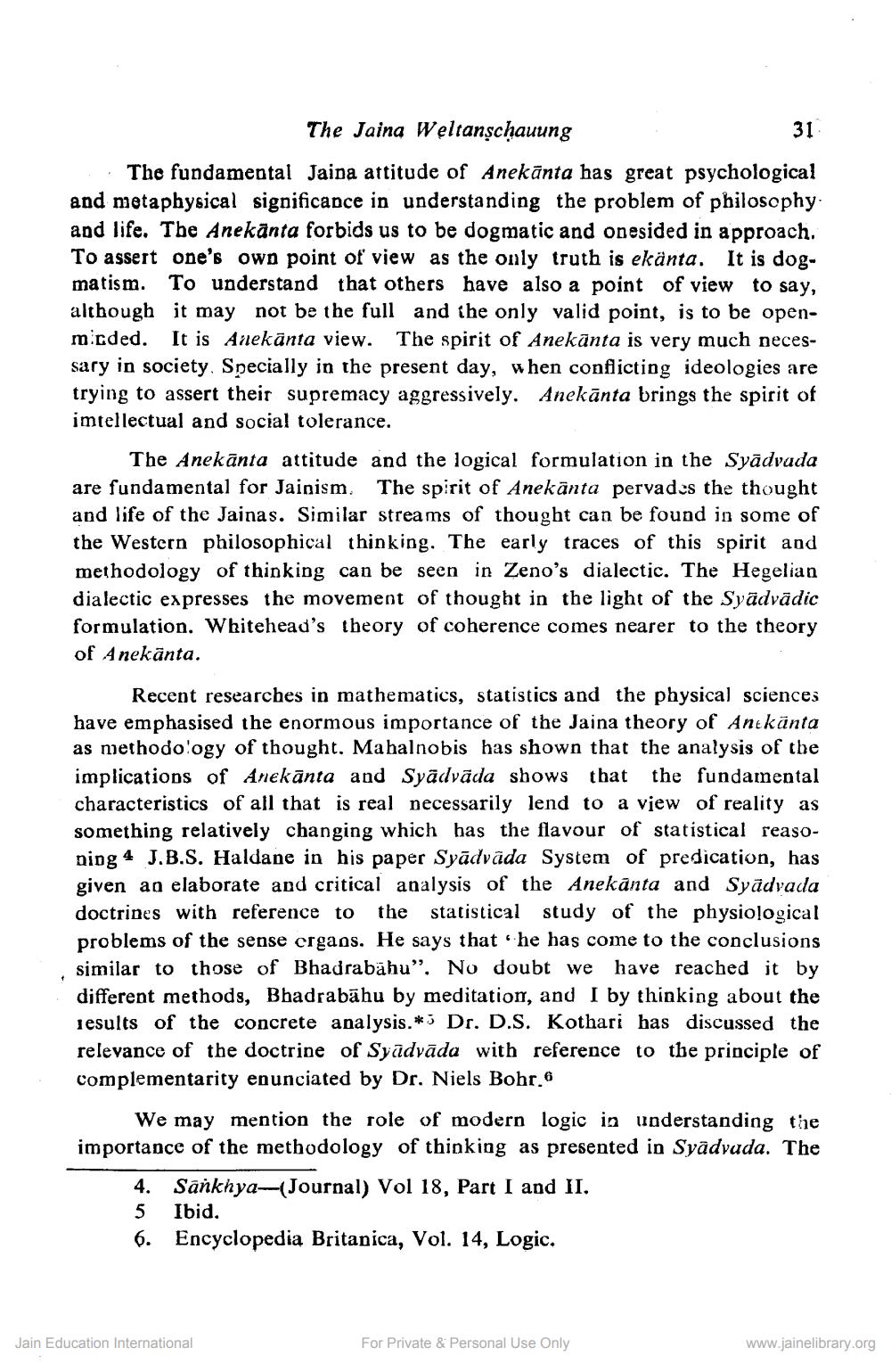________________
31
The Jaina Weltanschauung The fundamental Jaina attitude of Anekānta has great psychological and metaphysical significance in understanding the problem of philosophy and life. The Anekānta forbids us to be dogmatic and onesided in approach. To assert one's own point of view as the only truth is ekänta. It is dogmatism. To understand that others have also a point of view to say, although it may not be the full and the only valid point, is to be openmicded. It is Anekānta view. The spirit of Anekānta is very much necessary in society. Specially in the present day, when conflicting ideologies are trying to assert their supremacy aggressively. Anekānta brings the spirit of imtellectual and social tolerance.
The Anekānta attitude and the logical formulation in the Syādvada are fundamental for Jainism. The spirit of Anekānta pervades the thought and life of the Jainas. Similar streams of thought can be found in some of the Western philosophical thinking. The early traces of this spirit and methodology of thinking can be seen in Zeno's dialectic. The Hegelian dialectic expresses the movement of thought in the light of the Syādvādic formulation. Whitehead's theory of coherence comes nearer to the theory of A nekānta.
Recent researches in mathematics, statistics and the physical sciences have emphasised the enormous importance of the Jaina theory of Antkänta as methodology of thought. Mahalnobis has shown that the analysis of the implications of Anekānta and Syâdvāda shows that the fundamental characteristics of all that is real necessarily lend to a view of reality as something relatively changing which has the flavour of statistical reasoning 4 J.B.S. Haldane in his paper Syādvada System of predication, has given an elaborate and critical analysis of the Anekanta and Syädvada doctrines with reference to the statistical study of the physiological problems of the sense ergaos. He says that he has come to the conclusions similar to those of Bhadrabāhu". No doubt we have reached it by different methods, Bhadrabāhu by meditation, and I by thinking about the results of the concrete analysis. *) Dr. D.S. Kothari has discussed the relevance of the doctrine of Syūdvāda with reference to the principle of complementarity enunciated by Dr. Niels Bohr.6
We may mention the role of modern logic in understanding the importance of the methodology of thinking as presented in Syädvuda. The
4. Sankhya——(Journal) Vol 18, Part I and II. 5 Ibid. 6. Encyclopedia Britanica, Vol. 14, Logic.
Jain Education International
For Private & Personal Use Only
www.jainelibrary.org




